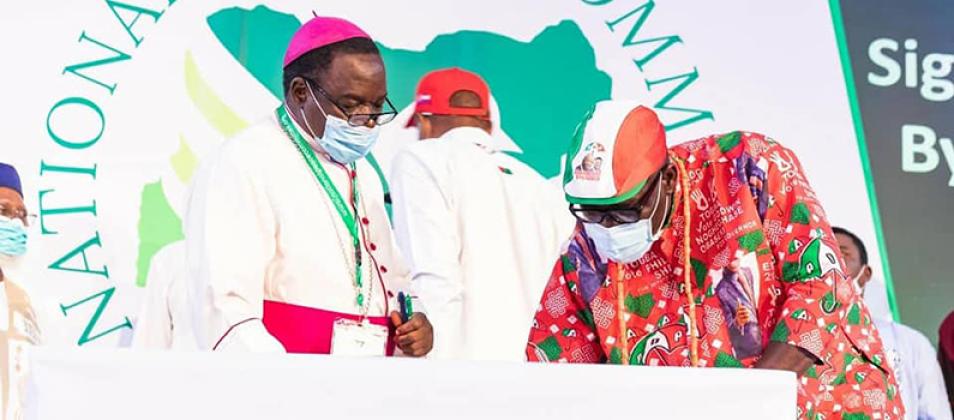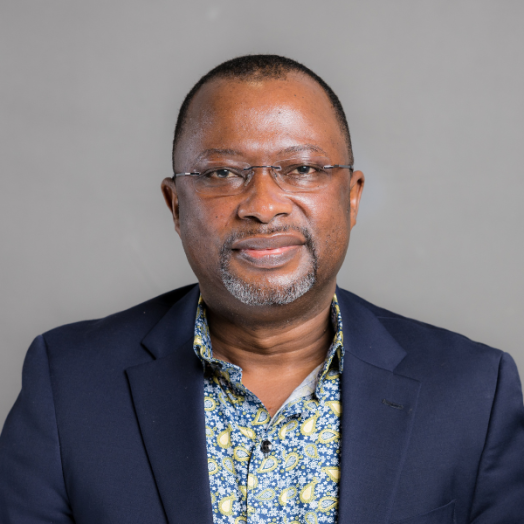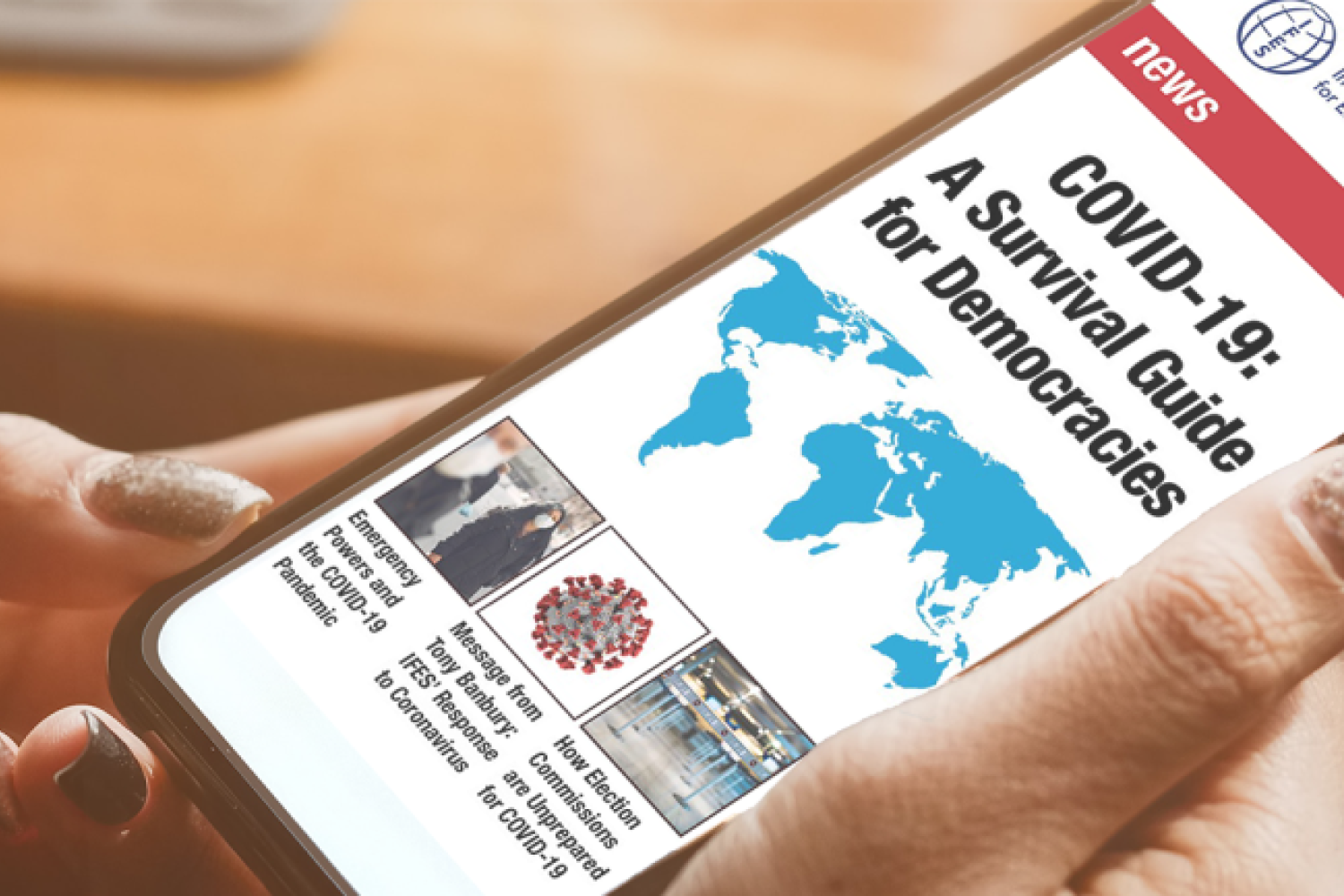
Violence Monitoring Contributes to Peaceful Elections in Nigeria
Since 2003, the International Foundation for Electoral Systems (IFES) has strengthened the capacity of nine local civil society organizations to implement the “Nigeria Election Violence Report” (NEVR) project to raise awareness of the importance of peaceful elections. The project – which uses IFES’ global Election Violence Education and Resolution (EVER) tool – equips community-based monitors to track and document violence, monitor indicators of possible conflict and build relationships with government and law enforcement agencies to support effective prevention of and responses to escalation.
Through its subaward recipient Kimpact Development Initiative (KDI), IFES made notable contributions to the conduct of peaceful off-season elections in Edo and Ondo states in 2020. KDI substantially improved and strengthened the NEVR project’s impact in monitoring, raising awareness and advocating for change around issues of electoral violence. Its approach included intensive and consistent proactive engagement with the Independent National Electoral Commission (INEC), National Peace Committee (NPC) and other key stakeholders and sharing of useful data with security leadership to inform security planning and candidates’ signing of the Peace Accord. With technical assistance from IFES, KDI also substantially expanded NEVR’s tracking of violence against women in elections.
In addition, KDI used IFES’ pre-election survey and INEC’s Policy on Conducting Elections in the Context of the COVID-19 Pandemic to adapt its activities to the pandemic. Through these efforts, KDI recorded tremendous success in the following areas.
Collaboration With Key Stakeholders at State and Local Levels
KDI engaged local peace structures in communities and traditional rulers, enhancing community outreach and local ownership of the peace process. For example, KDI’s engagement with the Oba of Benin through its collaboration with INEC and the NPC led to a de-escalation of violence and tension on Election Day. KDI’s engagement with these traditional rulers and community structures ensured the adoption of community solutions to mitigate violence on Election Day.
“I want to appeal to them to maintain peace. Let us support INEC. I maintain that the Benin throne isn’t partisan. The warring parties come to me individually, so how I can support one against the other? In Benin right now, I am not happy that my children are fighting themselves.”
– Oba of Benin to politicians ahead of Edo’s 2020 gubernatorial elections“[Mr. President,] you would recall a couple of weeks before the election, I came to see you and you assured me that we were going to have a free, peaceful and credible election. That was what we had during the election of September 19 and the whole world has acclaimed that Edo election was perhaps one of the best conducted in recent times in Nigeria.”
– Governor Godwin Obaseki, Edo state
Strengthened Partnerships and Information Sharing
KDI’s partnership with the NPC was vital to decision-making and mitigative strategies that fostered peace in both elections. Over the years, the NPC has been pivotal in ensuring that key political players play by the rules, which has immensely contributed to credible and less violent elections. It has also intervened in critical issues of national concern through high-level mediation and alternative dispute resolution. KDI’s Election Security Risk Assessment mapped hotspots in Edo and Ondo states prior to the elections and provided the NPC with evidence to engage with the key players and deploy mitigative strategies in ensuring peaceful elections.
KDI’s partnership and data sharing also enhanced and corroborated data gathered by INEC. This effort enhanced INEC’s work and as provided it with additional information to engage with security agencies and other key stakeholders. IFES’ partnership with KDI ensured NEVR information and data was shared regularly with INEC’s Election Operations Support Center to ensure rapid response to operational issues in the field and contributed to smooth Election Day operations.
NEVR widely disseminated periodic reports and fact sheets for the Edo and Ondo elections, which included KDI’s recommendations and key actors’ roles in mitigating or preventing violence. The information gathered helped ensure robust advocacy strategies were deployed ahead of both elections, such as the NPC Peace Accord in Edo and Ondo states.
Thanks to civil society partners @YIAGA and @SituationRoomNg @cleenfoundation @KDI_ng for their invaluable work. #EdoDecides2020
— U.S. Mission Nigeria (@USinNigeria) September 23, 2020
Social Media Engagement for Peace Messaging
KDI was able to produce short videos around the “We Can Do Better” campaign on social media. One such video highlighted societal barriers that discourage women’s political participation, promoted women’s participation in the electoral process and encouraged viewers to shun violence against women in elections. The video was widely shared across social media and with electoral stakeholders. This and other informative social media messages deployed by KDI contributed to driving an effective peace education effort. KDI had earlier benefited from an IFES workshop on international good practices workshop where some of the strategies were learned and adopted.
Citizen Engagement Through TV and Radio Advertisements and Technology
NEVR for the first time tapped into the power of the TV and radio advertisements. Anti-violence messaging aired on key election and political programs to draw public attention and raise awareness of the NEVR project and its findings on electoral violence.
KDI also utilized technology to more quickly and effectively collect electoral violence monitoring data. KDI and NEVR’s mobile app VTrack helped with monitor’s reporting efforts and reduced the time needed to review and verify incident reports.
For more information about the project, read the final report.
Published on May 12, 2021.














